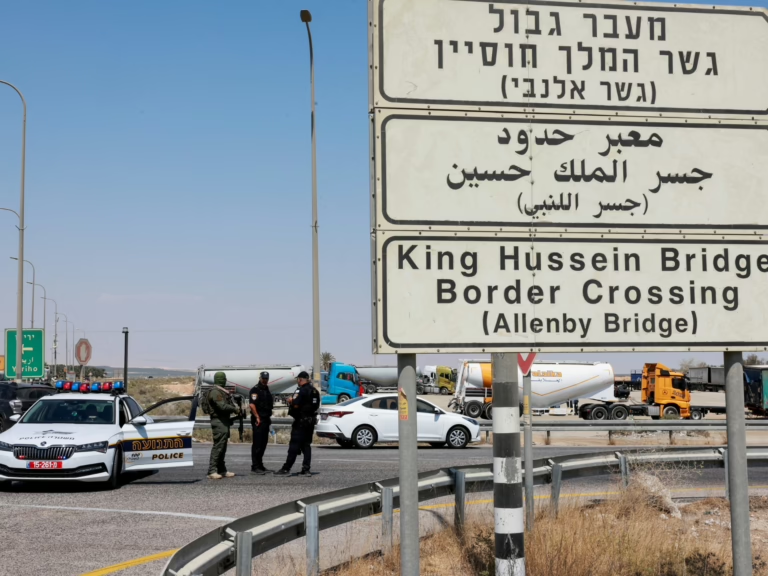The shutdown of the King Hussein (Allenby) Bridge marks the latest instance of collective sanctions enforced by Israeli authorities.
According to Palestinian officials, Israel has mandated an indefinite suspension of operations at the King Hussein Bridge-also referred to as the Allenby Bridge-halting all movement of people and goods through the sole crossing point connecting the occupied West Bank with Jordan.
The Palestinian General Authority for Borders and Crossings announced on Tuesday that the bridge would be closed starting Wednesday until further notice. Similarly, Jordan’s Public Security Directorate confirmed the closure, stating that the crossing would be inaccessible to both passenger and freight traffic “by the other side until further notice.”
This crossing serves as the primary exit and entry route for Palestinians traveling beyond the West Bank and had only recently reopened on Sunday after a temporary closure triggered by a fatal incident.
Last week, a Jordanian citizen driving a humanitarian aid vehicle fatally shot two Israeli soldiers at the Israeli-controlled checkpoint. The Qassam Brigades, Hamas’s military faction, claimed responsibility for the attack.
‘A Reaction to Growing International Recognition of Palestine’
Reporting from Amman, Jordan, Al Jazeera’s Hamdah Sahut highlighted the uncertainty surrounding Israeli Prime Minister Benjamin Netanyahu’s decision to completely shut the border. “There is considerable speculation about the motives behind this full closure,” Sahut noted.
“Some Israeli media outlets interpret this move as one of Israel’s initial retaliatory steps following the increasing number of countries worldwide formally recognizing Palestinian statehood,” she added. Sahut’s report originates from Amman due to Israel’s ban on Al Jazeera’s coverage within Israel and the West Bank.
The crossing, situated in the Jordan Valley and known as Karama on the Palestinian side, remains the only international passage for West Bank Palestinians that bypasses entry into Israel, which has maintained occupation of the territory since 1967.
Following the recent attack, tensions escalated as Israeli forces initiated a series of collective punitive measures, including demolishing the homes of suspects in the West Bank and revoking work permits of their neighbors.
Just a week prior to the incident at the bridge, Israeli security forces conducted raids in the West Bank city of Tulkarem, detaining over 100 Palestinians and imposing a curfew.
Palestinians face a daily ordeal navigating numerous checkpoints and undergoing frequent searches by Israeli soldiers within the West Bank, experiences described by activists as both degrading and distressing.
While global attention has largely focused on Israel’s devastating military campaign in Gaza over the past two years, a parallel crackdown has intensified in the West Bank. Since then, Israeli forces have killed upwards of 1,000 Palestinians, arrested thousands more, and demolished hundreds of homes and public facilities. Even before the October 7, 2023 attack inside Israel by Hamas-led groups, violence from Israeli military and settlers had reached unprecedented levels.
Prime Minister Netanyahu and his cabinet have publicly committed to annexing the West Bank, despite widespread international advocacy for a two-state solution that includes an independent Palestinian state.
Last week, Netanyahu declared unequivocally that “there will be no Palestinian state” while unveiling plans for expanded settlements on Palestinian land. These settlements, deemed illegal under international law, continue to obstruct the path toward Palestinian sovereignty.
On Monday, France joined Australia, Canada, Portugal, and the United Kingdom in officially recognizing Palestinian statehood, a move that has now been adopted by over 80 percent of the global community.
This growing diplomatic acknowledgment has intensified pressure on Israel amid its ongoing military operations in Gaza, where more than 65,300 Palestinians have lost their lives and the territory has been devastated.

















